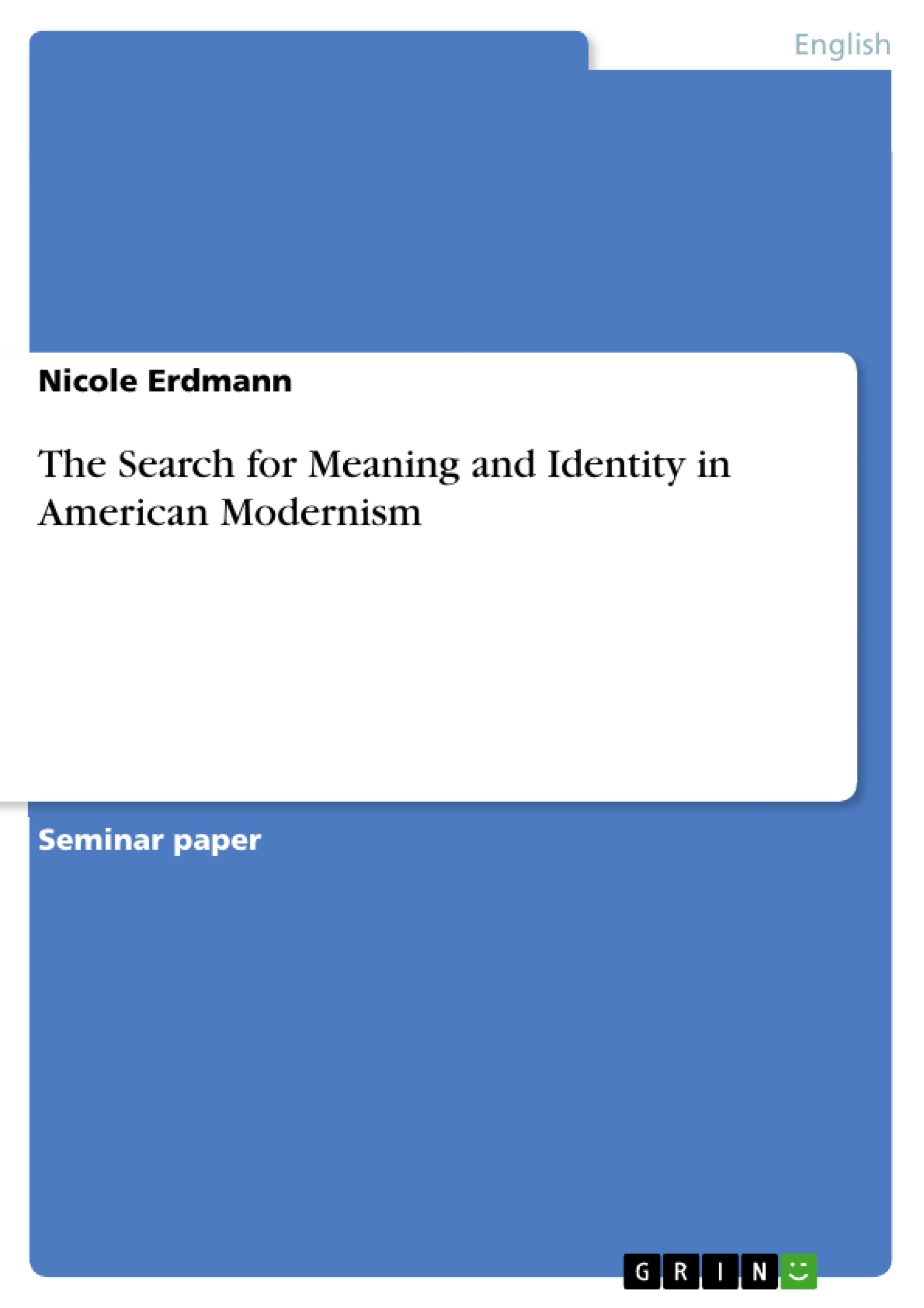This paper examines selected literature of the Modernist Era and the search for identity in and outside of the United States during this time.
One of the characteristics of Modernism in America is the development of changing attitudes towards religion, and in particular Christianity, which was seen as the traditional religion that had, up until then, been a pillar of American beliefs. These changed attitudes ranged anywhere from questioning one’s religion or faith to having flat out aversions to even the idea of (any) God. (my emphasis) In the late 1800’s, under the influence of the idea of successful Manifest Destiny, and major advances in sciences and technology, people were generally high-spirited, grounded in their beliefs. They minded their own business, followed their goals and dreams. They witnessed, or even experienced abundance, and paid little attention to things that they felt did not concern them, including foreign affairs.
Inhaltsverzeichnis (Table of Contents)
- Introduction. Changes in American Literature Between the Wars
- The Waste Land: Fragments of Society Reflected in Poetry
- The Great Gatsby: Reactions to Changed Elements of Society
- The Sun Also Rises: A Response from Abroad
- The Grapes of Wrath: Mixed Responses to Mixed Messages
Zielsetzung und Themenschwerpunkte (Objectives and Key Themes)
This paper examines selected literature of the Modernist Era as it responds to the questioning or rejection of traditional beliefs that America had relied upon and to answer the question if America found its identity in the time of Modernism.
- The impact of changing attitudes towards religion, particularly Christianity, in American Modernism
- The influence of World War I on American society and literature
- The exploration of identity and meaning in a fragmented world
- The role of language and its limitations in representing human experience
- The intersection of individual and collective experience in shaping identity
Zusammenfassung der Kapitel (Chapter Summaries)
- Introduction: Changes in American Literature Between the Wars: This chapter explores the significant shifts in American attitudes towards religion and traditional values during the Modernist era. It highlights the impact of social and political changes, such as the aftermath of World War I, women's changing roles, and racial issues, on the search for meaning and identity.
- The Waste Land: Fragments of Society Reflected in Poetry: This chapter focuses on T.S. Eliot's "The Waste Land," analyzing its portrayal of a fragmented and disillusioned society. It examines the poem's use of language, allusions, and fragmented structures to reflect the uncertainties and anxieties of the post-war era.
- The Great Gatsby: Reactions to Changed Elements of Society: This chapter explores F. Scott Fitzgerald's "The Great Gatsby" as a response to the societal changes of the 1920s. It examines the novel's themes of wealth, class, and the pursuit of the American Dream in the face of disillusionment and social upheaval.
- The Sun Also Rises: A Response from Abroad: This chapter analyzes Ernest Hemingway's "The Sun Also Rises," exploring its depiction of the "Lost Generation" of American expatriates in post-war Europe. It examines the novel's themes of alienation, disillusionment, and the search for meaning in a world devoid of traditional values.
- The Grapes of Wrath: Mixed Responses to Mixed Messages: This chapter examines John Steinbeck's "The Grapes of Wrath," exploring its portrayal of the Dust Bowl era and the migration of Dust Bowl refugees. It analyzes the novel's themes of social injustice, economic inequality, and the resilience of the human spirit in the face of hardship.
Schlüsselwörter (Keywords)
American Modernism, identity, meaning, religion, Christianity, World War I, fragmentation, language, disillusionment, The Waste Land, The Great Gatsby, The Sun Also Rises, The Grapes of Wrath, Lost Generation, social change, economic inequality, Dust Bowl.
- Arbeit zitieren
- Nicole Erdmann (Autor:in), 2017, The Search for Meaning and Identity in American Modernism, München, GRIN Verlag, https://www.grin.com/document/427381



